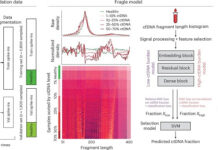Researchers at Emory University’s Winship Cancer Institute have identified a new type of immune cell, the stem-like CD4 T cell, which plays a key role in anti-tumor immunity. The pre-clinical findings, published in Nature, suggest that activating these cells could enhance the body’s ability to fight cancer, offering hope for patients whose cancers do not respond to traditional immunotherapies.
The study, led by Dr. Haydn T. Kissick, a researcher in the Cancer Immunology Research Program at Winship and assistant professor at Emory University School of Medicine, reveals that stem-like CD4 T cells reside in lymph nodes near tumors. These cells have the potential to drive strong anti-tumor responses, but they often remain inactive, limiting the immune system’s ability to combat the cancer.
As reported by economictimes, these stem-like CD4 T cells can renew themselves and differentiate into various immune cell types. They are identified by two key proteins, PD1 and TCF1, which regulate their self-renewal and activity. In lab models, stimulating these cells significantly improved the effectiveness of a common immunotherapy known as PD1 blockade.
“In about 10 percent of patients, where the stem-like CD4 T cell is already active, the immune response to cancer is much stronger,” said Kissick. “These patients tend to survive longer after surgery and are more likely to respond to checkpoint immunotherapy. However, in most patients, these cells remain suppressed, effectively telling the immune system to ignore the tumor.”
Maria Cardenas, the study’s first author, highlighted the importance of overcoming this suppression. “We found that although these immune cells are commonly in an idle state, they can switch to an active state, triggering a powerful anti-tumor response and improving the efficacy of PD1 blockade in animal models.”
The research suggests that nearly all cancer patients have these stem-like CD4 T cells in the lymph nodes surrounding their tumors. “Learning how to activate these cells and keep them active could lead to new treatment approaches for a broader range of patients,” explained Kissick.
Future studies will focus on finding ways to consistently activate the immune response in these cells. Researchers plan to explore the use of mRNA and lipid nanoparticle (LNP) technology to reprogram stem-like CD4 T cells, removing the immune response brakes to more effectively fight cancer.
“We still face many challenges and unanswered questions,” said Kissick. “But with the resources and expertise here at Winship, we are well-positioned to advance these discoveries and figure out how to fully leverage these mechanisms to turn on the immune response. Our robust Phase I Clinical Trials Unit and the contributions of our physicians and patients give us the pieces we need to solve this puzzle.”
























